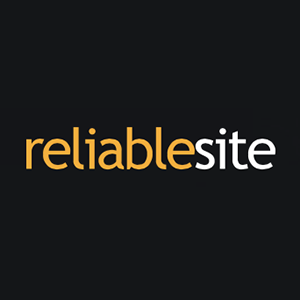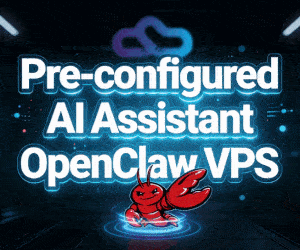 Our interview series has featured a lot of industry leaders and we continue today by talking with Radic Davydov, CEO of ReliableSite. In this interview, you’ll get a fascinating look inside this successful company, including their custom hardware, how they’ve grown to their current position, and how they’re evolving for the future.
Our interview series has featured a lot of industry leaders and we continue today by talking with Radic Davydov, CEO of ReliableSite. In this interview, you’ll get a fascinating look inside this successful company, including their custom hardware, how they’ve grown to their current position, and how they’re evolving for the future.
Be sure to check out ReliableSite’s range of dedicated server offerings!
My background is a software engineer. I initially became intrigued by the hosting world somewhere in the mid-2000s after coming across a local hosting company for sale. After a lot of research and planning, I spent my first few thousand to buy a server and colocate it. At that time, we offered shared and reseller hosting with HELM. Over time, we expanded our product offerings to include dedicated servers and eventually phased out shared/reseller hosting so that we can concentrate on a single type of product.
Starting a hosting company is similar to any other company, seeing great success greatly rests upon your ability to offer a product that’s compelling to customers or be able to compete in a marketplace where customers choose your offerings and more importantly, stick around long term. As an example, entering the hosting world, expecting to compete on pricing without any way of keeping a customer long term to eventually allow them to grow with you is a strategy that commonly ends in a failure after long periods of operating at either a loss or razer thin margins.
The hosting industry is seeing massive broadening through digital services. These can vary from customer facing apps that require processing, storage, content delivery, etc. As an example, a service offering off-site security camera storage will require processing for compression and analysis, physical storage of footage, and bandwidth for capturing and showing footage. While these services are not considered “hosting”, these all require internet infrastructure. At ReliableSite our forward vision is heavily concentrated on our existing specialties, offering better quality through innovation in our entire model. This innovation ranges from the hardware that our services sit on, through the software that automates the entire process. These innovations lead to better overall quality, faster resolution of issues, and overall cost savings that can be passed down to the customer without sacrificing overall satisfaction.
Data centers, colocation, and bare metal / dedicated services aren’t becoming more niche. These services have always targeted a customer base who have grown out of specialty solutions and are looking to reduce costs by having more control of their infrastructure. While the services may not be growing as a percentage of the market share, the overall market is growing. At ReliableSite, we have spent years investing in ourselves. It started with software, nearly every piece of software that we run is written in-house, ranging from full network automation, to DDoS protection, and even fully automated deployment of bare metal. One of our toughest challenges has been improving at the data center level. Current server and rack design greatly limits the potential that modern technology has to offer and we have spent years designing, prototyping, and manufacturing our own chassis. These chassis target improved density at the data center to maximize usage and more importantly, allow much faster building and servicing of servers.
Automation is at the core of ReliableSite. If it’s a process that is repeated more than once, it needs to be automated. Once a server enters service, it’s deployed, tested, and recycled without even being touched by a tech. Our on-site techs strictly only perform building and servicing of hardware. Everything from network configurations to OS installs, things work better when human error is removed.
DDoS protection is a never ending battle of cat and mouse. We have built an extensive layer 3/4 filtering system in-house that analyzes all traffic that comes into our network and filters malicious attempts. One of the hardest lessons learned was that it’s much harder not to block good traffic than it is to block bad traffic. A system that’s currently in development at ReliableSite is targeting improved filtering by using machine learning / AI for deep packet analysis to analyze traffic and perform actions based on application specific needs for more accurate filtering. It’s a solution we’re hoping to start prototyping before the end of this year.
Everything we have ever done starts with a single question of “how do we make this better?”. About a half decade ago, we were pondering the same question after replacing failed parts from a SuperMicro Microcloud. These failed parts could not be replaced with newer generation parts, even though they were nearly identical, and were 2 – 3 times the cost of standard off the shelf parts that served an identical process. We set off to build our own chassis that offered improved density over standard 1Us, but could still use standard off the shelf motherboards and power supplies. Most importantly, these needed to be easily serviceable. Our original design (which we use now in bulk), offered a 50% increase in density and took many failed prototypes. Today, we have a prototype (that still has a long way to go) that targets a 100% increase in density and further improvements in serviceability.
Here’s a great post that shows these chassis in action.
The core business at ReliableSite is bare metal servers and I expect it to be for at least the next 1 – 2 years as we evolve our products and start targeting a broader market.
Mistakes are easy to identify in hindsight, but I don’t imagine that I would make any different decisions in a do-over situation without knowing what the future holds. I believe it’s more important about how mistakes are dealt with and having some sort of “plan B” if things don’t go as expected.
In the early days, much of the company’s success was utilizing excess network capacity and space from other companies. We spent years growing with others and came to a point where we needed to take control of more of our infrastructure. In a very short time, we needed to design a (very) unorthodox network, test it, and automate it. The network is utilizing standards that were not designed to work with each other, so we had to connect these pieces together ourselves with our own software layer for all of the magic to happen. It would have been physically impossible to maintain it with a traditional network engineer. While this design and testing was ongoing, we were working on designing a DDoS filtering solution that both worked as well as solutions we had used in the past and fixed the flaws that we saw in both those solutions and competitor’s solutions. Both were ambitious projects that worked out in the end, but required a lot of brains to come together from different engineering worlds.
My favorite part of my role is the forward vision, planning, and project management. We seem to have at least half a dozen major projects going on lately. It’s amazing to see how different minds can work to make something great.
The hardest part of my job is patience. I have learned over time that anything can be achieved through patience. Things don’t often work out on time, on budget, or even at all. Taking a step back or even a full reset can be tough, especially when a lot of time (and money) has been committed to a project.
Respect. Show everyone the same respect you would expect to receive from them. Whether it’s the people I work with or our customers, there’s nothing worse you can do to someone than disrespect them.
Trust is built on experience. No amount of words on a paper or screen can change first hand experience. Give us a try, we offer a competitive package and are always looking to improve.
Thanks, Radic, for the insights! Be sure to check out ReliableSite’s line of dedicated servers and also the rest of interview series for more insights from industry and community leaders.






















Leave a Reply